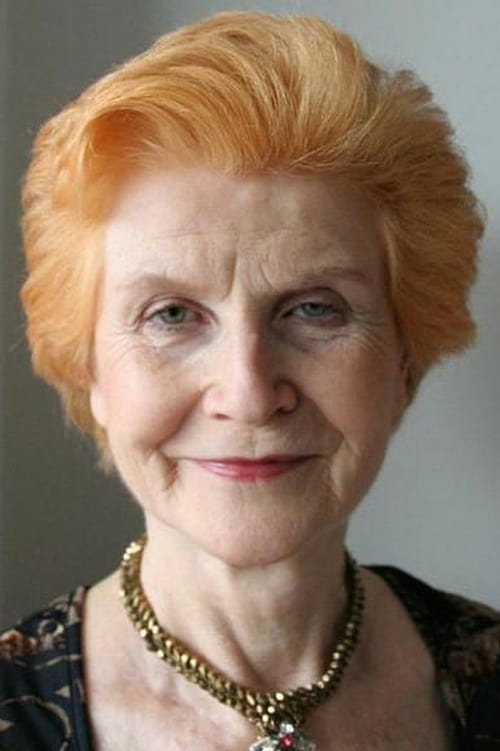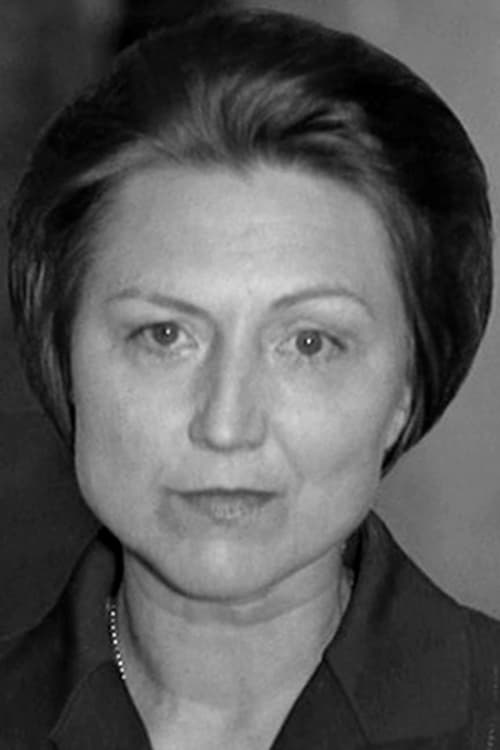Fassbinder: Love Without Demands (2015)
Género : Documental
Tiempo de ejecución : 1H 49M
Director : Christian Braad Thomsen
Sinopsis
Rainer Werner Fassbinder was probably Germany’s most significant post-war director. His swift and dramatic demise at the early age of 37 in 1982 left behind a vacuum in European filmmaking that has yet to be filled, as well as a body of unique, multi-layered and multifarious work of astonishing consistency and rigour. From 1969 onwards, Danish director and film historian Christian Braad Thomsen maintained a close yet respectfully distanced friendship with Fassbinder. Fassbinder – Lieben ohne zu fordern is based on his personal memories as well as a series of conversations and interviews he held with Fassbinder and his mother Lilo in the 1970s.

A single mother is confused by the changes in her teenage son, who has become distant since spending summer vacation with his father.
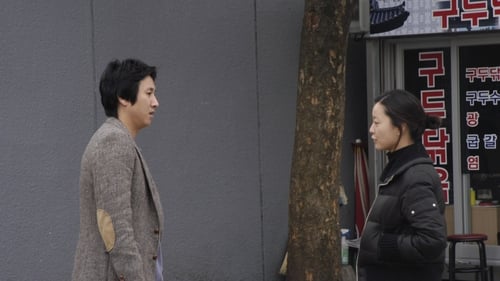
Hong Sang-Soo’s Lost in the Mountains (South Korea, 32min) the visitor is the supremely self-centred Mi-Sook, who drives to Jeonju on impulse to see her classmate Jin-Young – only to discover that her friend is having an affair with their married professor, who Mi-Sook once dated herself. The level of social embarrassment goes off the scale. In Naomi Kawase’s Koma (Japan, 34min), Kang Jun-Il travels to a village in rural Japan to honour his grandfather’s dying wish by returning a Buddhist scroll to its ancestral home. Amid ancient superstitions, a new relationship forms. And in Lav Diaz’ Butterflies Have No Memories (Philippines, 42min) ‘homecoming queen’ Carol returns to the economically depressed former mining town she came from – and becomes the target of an absurd kidnapping plot hatched by resentful locals. Serving as his own writer, cameraman and editor, Diaz casts the film entirely from members of his crew and delivers a well-seasoned mix of social realism and fantasy. —bfi

Algerian filmmaker Tariq Teguia wrote and directed this impressionistic look at a man whose life takes an unexpected turn far away from home. Malek (Abdelkader Affak) is a surveyor from Algeria who is semi-retired, but at the urging of a friend he takes an assignment in Oran. The region in question was the site of frequent battles during Oran's civil war, and an earlier survey that would make it possible to bring electrical utilities to the area was cut short by the fighting. While the zone is still unstable, Malek sets out to complete charting the area, and finds the locals regard him with suspicion and hostility. However, not everyone is disrespectful, and he discovers a young woman (Ines Rose Djakou) who is attracted to him, which leads him to consider abandoning his old life to run away with her. Inland was an official selection at the 2008 Venice Film Festival.

A businessman goes home during the working day to change his trousers having spilled coffee on himself. When he arrives in the underground garage below his apartment block he finds a car on fire with a dead man inside. He also finds himself being filmed. He takes the video upstairs to his home and watches a man do ordinary things like shave etc before covering himself in petrol and setting himself and his car alight. Procter becomes a driven man as he tries to unearth what drove this person to kill himself in such an unusual manner. By Joachim Trier.
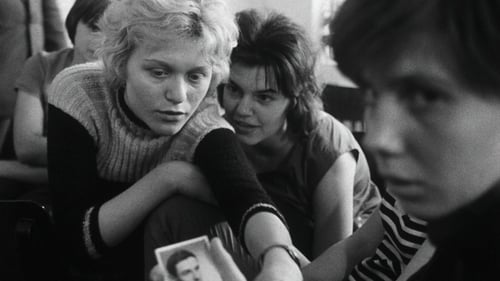
The themes of anarchy and individualism that run through Věra Chytilová’s work begin here, in an almost docu-realist look at women finding freedom and joy amid the rigid conformity of life in a communal factory dormitory.

Director Jonas Mekas travels through New York nights, through apartments, studios, backstage rooms, galleries, bars, and clubs. Encountering old acquaintances like Ken and Flo Jacobs, Yoko Ono, friends, brothers and sisters, sons and daughters. Mr. Mekas begins the film with the words 'I can't sleep.' Who hasn't been in this situation? Sleepy and yet wide awake at the same time, you find yourself in the world of those exhausted from the day's exertions, the drunk, the relaxed, the dancing, the brooding, the mourning, and the pensive.

Two boys, Li Ahh and Li Ohm, grow up motherless. Their father, Sui, is a workaholic who shuts himself out of the world. The boys' quest to reach out to their father leads them to adopt a puppy. But when the animal is sent away for being a nuisance, the boys are devastated. For the first time, Sui realizes that all his children ask is simply to love and be loved.

Focuses on a boy as he discovers love and comes to face the morality of his family. The film speaks of this through a web of oblique details, attempting to capture the flesh of relations and, perhaps, the very tension of being...

A well educated and humble teacher arrives in a new city and at a new job in the pre-revolutionary Iran. He falls in love with a hardworking underprivileged young woman that nurses her very old mother and raises her young brother. In an environment where commitments and social problems often stand in the way between people and their dreams.

In "The Lead Shoes", we can neither thrust in our eyes nor our ears to help us understand how time flows or how space is. Therefore, Peterson forces us to take both space and time as relative experiences. The consistent disorientation in the film and our consistent inability to perceive them in absolute terms become the main subject of the film. Peterson makes us aware that space and time are more complicated than we think they are and they should be experienced in a more open-minded way. —Yoel Meranda
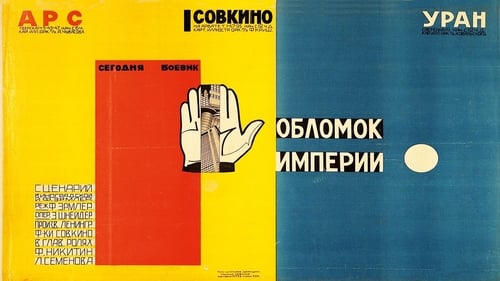
La película trata sobre los cambios enormes que han pasado en la URSS después de la victoria de la Revolución de Octubre. Hacia el fin de la guerra civil, el ex suboficial y caballero de San Jorge Filimonov se encuentra contuso en estado de shock. Pierde por completo la memoria. Desde hace un tiempo, Filimonov ayuda al guardián de la pequeña estación ferroviaria. En una ventanilla del tren que pasa, Filimonov ve a su mujer. Esto le despierta su memoria. Sin embargo, Filimonov se acuerda sólo de lo que ha pasado con él hasta la contusión. Decide ir a Petersburgo para encontrar a su mujer y a su patrón del trabajo. Durante un tiempo, no puede comprender los cambios que han pasado en el país en los últimos años. Los obreros ayudan a Filimonov a entender que ahora, bajo el poder Soviético, él junto con ellos es el amo de la fábrica y de su propia vida.

A documentary portrait of Miho Shimao, widow of renowned Japanese writer Toshio Shimao.
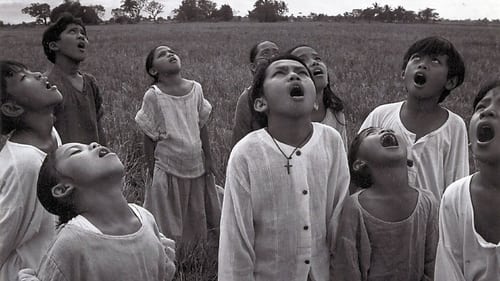
What follows is a black-and-white silent film set in the 1890s during the brewing Filipino revolution against Spanish colonialism. A series of tragic and comic sequences tells the Three Ages of an Indio (“common man”) as he progresses from boy bell ringer in a village church to teenage revolutionary to adult theater actor rehearsing a popular Spanish play.

Una pelota blanca de ping-pong va flotando por un riachuelo hasta que la encuentra Bilgee, un niño de Mongolia. Su abuela le dice que es una perla resplandeciente que ha caído del cielo. Él se cree la historia y se pasa toda la noche en la pradera con sus dos mejores amigos: Ergotor, que no sabe montar a caballo, pero sabe conducir una moto, y Dawaa, que es muy pequeño, pero nunca se rinde. Sin embargo no llegan a ver el ansiado resplandor de la pelota y todo lo que consiguen es que sus padres les den una paliza cuando regresan a casa. Durante el festival anual de Nadam, los niños confunden la «perla resplandeciente» de Bilgee con la pelota de golf que ven en una película. El proyeccionista les sacará de la confusión y provocará el desencanto de los niños.
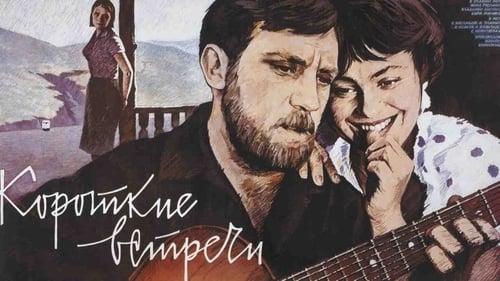
Country girl Nadia moves to the city and becomes a maid in Valya's apartment. Valya, who is a member of the local District Committee, does not know that Nadia fell in love with her currently absent husband, a geologist named Maksim, when he had visited Nadia's village during a recent expedition.

Djomeh is a young Afghan man who has come to live in Iran because of family trouble. Working as a milk boy, he encounters discrimination from the Iranian villagers and disdain from Habib, a fellow Afghani to whose trust Djomeh was given. The only person who shows any friendliness to him is his employer, who Djomeh asks to intercede for him in asking a woman from the village for her hand in marriage.

A man goes to see his former schoolmate working at a boiler house and persuades him to burn in the furnace the corpse of his communal flat neighbor whom he has just murdered after a quarrel. An orphaned girl gets a job in the archives of the maternity home to find out the identity of her mother who abandoned her years earlier. She finds her, befriends her and takes the first opportunity to throw her into the sea. An old intellectual tries to explain to the neighbor’s five-year-old daughter “all the abomination of her lumpen existence”. The girl feeling hurt for her mother decides to poison the old man with arsenic.
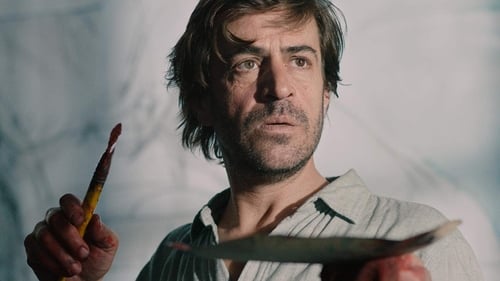
A Belmonte, interesado en retratar al ser humano, sus pliegues, su desmesura, se le acerca una muestra de pintura en el Museo de Artes Visuales de Montevideo, pero él está más ocupado pensando en los cambios que vive su familia: su ex mujer está embarazada, fruto de la relación que mantiene con otro hombre, y percibe que su hija, Celeste, pasará menos tiempo con él cuando nazca su hermano. Belmonte necesita la brújula que le supone estar con su hija, preparar su almuerzo, acompañarla a la escuela y, sobre todo, comenzar a compartir con ella su mundo interior sin esconder las preocupaciones, aunque sean propias de un adulto.

En un pequeño pueblo desolado reina la tristeza y la resignación. Sólo Dolores, una mujer gruesa de cincuenta años, cree todavía en el futuro. Dolores es el centro de admiración de todas las mujeres gracias a su bondadosa naturaleza, pero Manolo, su marido, no puede soportar el exceso de generosidad y la abandona por ello. Dolores decide pecar por primera vez, acostándose con un hombre anónimo; pero sin querer le salva la vida y el supuesto pecado se convierte en una obra de caridad. Con el tiempo llegan otros hombres buscando la ayuda de Dolores, hasta que ésta decide abandonarse a su vocación de santa y acaba acostándose con todo el mundo, renaciendo el pueblo. Cuando las mujeres se enteran de que sus maridos son felices porque se acuestan con Dolores, deciden no decir nada. El nombre de Dolores corre de boca en boca y decenas de hombres vienen desde las ciudades a ponerse en cola para conocerla.
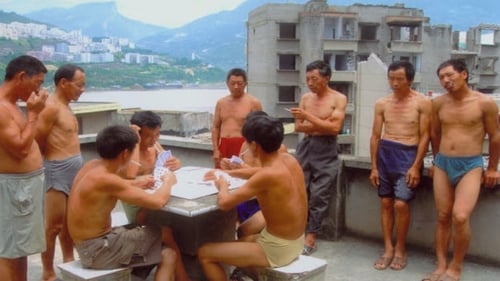
Jia Zhangke travels with painter Liu Xiaodong from China to Thailand as they as they meet everyday workers in the throes of social turmoil. Liu Xiaodong is well-known for his monumental canvases, particularly those inspired by China's Three Gorges Dam project. Jia Zhangke visits Liu on the banks of Fengjie, a city about to be swallowed up by the Yangtze River. The area is in the process of being "de-constructed" by armies of shirtless male workers who form the subject of Liu's paintings. Liu and Jia next travel to Bangkok, where Liu paints Thai sex workers languishing in brothels. The two sets of paintings are united in their subjects' shared sense of malaise in the face of the dehumanizing labor afforded them.


